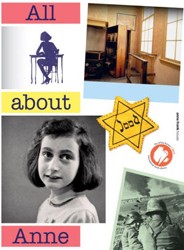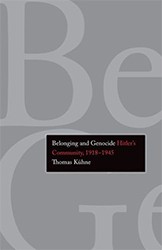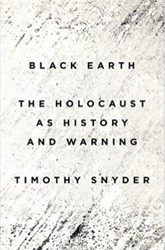Another book on the Holocaust? Yes and no; this book is about a different Holocaust — the one that survivors of concentration camps endured after April 1945. That is when survivors began to experience the horrific and persistent memories of what they had lived through, according to Joseph Polak, who entered the camps when he was just a toddler.
In the camps, the goal was simply to survive day to day. At night, the constant noises of people crying and climbing up and down the bunks to go to the bathroom, and the smells when they didn’t make it in time, did not give anyone time to meditate. So it was only after liberation that survivors who had physically recovered fully realized and relived the subhuman lives they had been living.
That is when the nightmares began, mostly because of guilt; many knew they had behaved badly under duress. How many Dutch Jews, given a little authority, sent other people’s children off to Auschwitz to save their own, and how many inmates stole life-saving slices of bread from sleeping inmates? Who created those lists of people the Nazis used to round up the Jews in Holland? Why is it that 90% of the Jews in the Netherlands were slaughtered? These questions have obvious and disturbing answers.
Since this book is told from three different time periods, Polak asks many questions related to each of the periods, and not all of them have answers. At the beginning of the book, Polak is revisiting Troebitz (where his father is buried) in 1995 with a group of survivors; his memories of what happened fifty years earlier surface and he recounts some of them. He wonders why he, a boy of three when he entered the camp, found a Nazi guardian who watched over him but asks why his father was so soon stricken with typhus and died. He intersperses these periods with a timeless, surrealistic philosophical discussion with an angel. And he asks the eternal questions of the Angel of God: How did He allow the slaughter, especially of so many children? Why hasn’t He avenged this slaughter?
As an example of one atrocity, Joseph Polak’s beloved Uncle Anton, a widower, had the job of soothing people selected for deportation. And what happened to him? He, ”together with his four children, Isaac, age 11, Judith Hadassah, age 10, Shulamith Ruth, age 8, and Ben Zion Baruch, age 6 — all were forced to run nude down the chute in Sobibor, where on July 9, 1943, they were gathered into the gas chambers. The powerlessness of it all — a father in his thirties, huddled naked with his four children, waiting for the gas.” Why?
This wrenching vision is only one of the stories Polak tells of the humiliation and destruction of body and soul that went on daily and toward which Polak periodically questions God’s attitude.
And yet, there is something to be learned from the way in which two types of people survived in larger numbers than others. One group was composed of Zionist teenagers who kept planning to get to Palestine and sang their pioneer songs together. About 80% of them survived. The other group was composed of Orthodox Jews who spent over an hour a day in deep Torah study and met three times a day to pray together. These groups had one thing in common — they did not succumb to despair.
Another major point seems to be reflected most in a photograph most people have never seen before, of a seven-year-old boy on a sunny day, walking down a path in Bergen Belsen lined with dead, unburied bodies. He doesn’t look at them and seems unconcerned. Is this denial or is he following the dictates of Jewish law, which forbids one to look at a dead body? Perhaps the boy represents the world’s attitude toward what happened during the Holocaust.This is one of the many unanswered questions we are left with after reading this profound book.




